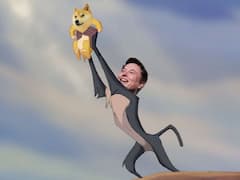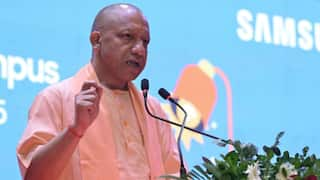How Web3 Redefines Data Ownership And Privacy For Users
With users having infinite control and ownership over their data in the Web3 world, the next generation of the Internet will usher in a new era of tokenisation, decentralisation, and personalisation.

By Pradeep Aswal
While the current state of the Internet (Web2) is characterised by more user-generated content, the rise of distributed ledger technologies (DLTs) like blockchain and its ever-increasing use cases are powering a new version of the Internet called Web3. Built on blockchain platforms that are largely open-source in order to facilitate community-driven development, Web3 empowers users with complete control over the decision-making process.
As a result of its decentralisation and trustless transaction capabilities, Web3 can deliver more engaging user experiences, while also solving data privacy concerns that are rampant in the Web2 domain. Let us look at the salient features of Web3 and how it provides users complete control over their data and its usage, all the while fostering increased collaboration, innovation and distributed ownership.
Understanding Web3 Architecture
Web3 uses blockchain technology to store data over a vast decentralised network of nodes. Additionally, Web3 utilises smart contracts functionality to offer users the ability to transact with one another, without the involvement of an intermediary or central authority. As a result, users can securely interact and transact with anyone across the globe, all the while using decentralised applications (dApps) that can be accessed via Web3 browsers. Since transactions are routed via the underlying blockchain network, all related information is stored permanently on the blockchain and secured by inbuilt consensus mechanisms.
Unlike Web2 platforms where fiat money is used for transaction purposes, Web3 platforms rely on their native crypto token or other cryptocurrencies.
These cryptocurrencies store all settlement data on blockchains and share only relevant information with other blockchains when needed. Thus, transacting via cryptocurrencies provides users with complete control over who can view their personal information, with ownership transferred only through smart contracts for enhanced data ownership standards. These digital assets represent ownership and identity within the Web3 ecosystem, eliminating the need for fiat currencies and enabling the proliferation of a truly decentralised ecosystem.
Moreover, cross-chain messaging protocols have ensured that users can seamlessly transfer their crypto tokens between blockchains, thereby facilitating enhanced interoperability within the Web3 world. It is amply clear then that Web3 architecture aims to create a connected digital environment where user data ownership and privacy control rests with the users rather than one single entity.
How Web3 Is Upholding Users’ Privacy And Redefining Data Ownership
Web3 uses technologies such as self-sovereign identity (SSI) that eliminate the need to store personal data on a central database. Instead, references are stored on the blockchain and SSI uses them for user verification whenever needed. To ensure users have full ownership of their personal data while maintaining high privacy standards, Web3 relies on key tenets that distinguish it from the Web2 ecosystem.
- Personal information is never written down on the blockchain, keeping their identity and other private details completely secure.
- dApps and other blockchain systems can only verify user credentials based on referenced data as needed.
- By employing advanced cryptography and relying on decentralised data storage structures, Web3 eliminates typical security concerns plaguing Web2 platforms.
What’s more, by deploying new digital models that offer users the ability to self-manage their personal identity and data, Web3 aims to democratise the Internet and provide safer, more immersive and highly engaging user experiences. In fact, Web3 data ownership standards are transforming the creator economy, with each content creator now able to host their content through digital assets like non-fungible tokens (NFTs).
They not only have complete ownership and commercial rights to their generated content but can also earn royalties on subsequent transactions that are made possible by smart contracts. This is a far cry from the Web2 world where content creators have to cede revenue and creative rights to centralised platforms.
Looking Towards A Web3 Future
Apart from content creators, any service-based business or individuals involved in providing their services will benefit immensely from Web3’s creator-led economy. What’s more, the rapid adoption of cryptocurrencies and the increasing use of digital assets for transferring value will undoubtedly help establish Web3 as the future of the internet. As more internet users experience Web3’s unparalleled data privacy, security and ownership standards, we could witness an exponential growth in the number of Web3 users. This will undoubtedly speed up the Internet’s transition from its current Web2 form to a more decentralised and user-focused Web3 world.






































